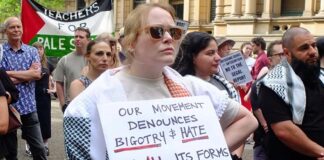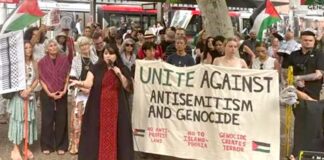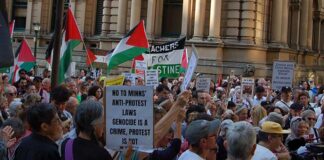The Philippines has a new president-elect. Brash and controversial, Rodrigo Duterte claims to represent the interests of regional areas against the dynasties of “Imperial Manila” and has described himself as a “socialist”.
But his populism is a dangerous ruse, and his victory has exposed the crisis of Philippine capitalism and its political elite.
Duterte began his political career in Davao City on the island of Mindanao, the site of several armed separatist movements involving the indigenous Lumad and Moro peoples and militias of the Maoist Communist Party of the Philippines (CPP). He is popular locally as mayor for supporting indigenous representation in government and negotiating peace with rebels.
However, he is widely believed to have founded the Death Squads that roam the city conducting summary executions of criminals. Duterte has promised to bring the same approach to the Presidency. He says he hopes to kill “100,000 criminals” and boasts that their corpses will “fatten the fish in Manila Bay”. Even journalists are not safe, as Duterte thinks they are “corrupt”.
Duterte claims that crime declined under his mayorship, although Human Rights Watch has said only petty crime has fallen while the murder rate has risen. Death squads are paid per kill, and many victims are mere petty thieves and drug addicts. Misidentifications are not uncommon.
The paradox of Duterte’s populism shows through elsewhere. He is notorious for making sexist comments and making advances on journalists and fans, even as he pledges to have rapists shot on sight. He is on record supporting unrestricted access to contraception and LGBT rights, including equal marriage rights.
During a presidential debate, Duterte called for dialogue with China over the South China Sea border dispute, before declaring that he would ride a jet ski to the Spratlys and plant the Philippine flag there.
The Duterte phenomenon shares similarities with Donald Trump’s success in the US—both share systems dominated by the political establishment, and a backdrop of growing inequality and neo-liberal policies.
Under the incumbent President Benigno Aquino III, economic growth focused on extractive industries, tax-free Special Economic Zones, urban construction, the service industry and overseas foreign worker remittances, the latter of which pumps $30 billion into the economy yearly. Short term contracts and casual labour are the norm.
Despite strong economic growth the poverty level, at 26.3 per cent, has not changed throughout Aquino’s time in office. Yet the wealth of the country’s 40 richest people has more than tripled to $71.4 billion, according to Forbes magazine.
The economy remains firmly in the control of a small elite. Industry giants, landowners and political clans are closely linked, often by blood, marriage or schooling. Duterte is no exception. He is closely related to no less than three major political families in Mindanao and Visayas. It was recently revealed he has $4 million in an undeclared bank account.
Left alternative?
The left was unable to offer a coherent alternative. The CPP, still the strongest of the left parties, continues its guerrilla “people’s war”. Its leader in exile, Jose Maria Sison , effectively endorsed Duterte, who has offered them cabinet seats, on the condition that their militias disband. Others on the left also suggested that Duterte was some kind of lesser evil to the usual candidates of the political elite.
Duterte’s populist honeymoon won’t last long under the business families’ watch. He has already committed to Aquino’s neo-liberal policies, including fewer limits on foreign ownership of firms, more Special Economic Zones, and lower corporate taxes. He also broke a key promise by refusing to sign a union petition against contract labour. After promising deregulation to the rich, safety to the middle class and a voice for the poor, the poor are set to lose once more.
This makes his authoritarianism all the more concerning. Duterte has promised to shoot unionists that go on strike against his policies. This is a man who has advocated a hero’s burial for former dictator Ferdinand Marcos, just as Marcos’ son narrowly lost the vice presidential race.
Surveys show the main factor behind Duterte’s support was a protest vote against President Aquino. But it would be a huge mistake to see him as any alternative to the existing corrupt political elite. His authoritarian fantasies are no solution.
The Philippines has a rich history of movements from below from the “people power” revolutions that overthrew the Marcos dictatorship in 1986 to the mass protests that forced out President Estrada in 2001. The hope for changes lies in independent movements of the working class against poverty and exploitation.
By Jason Wong





